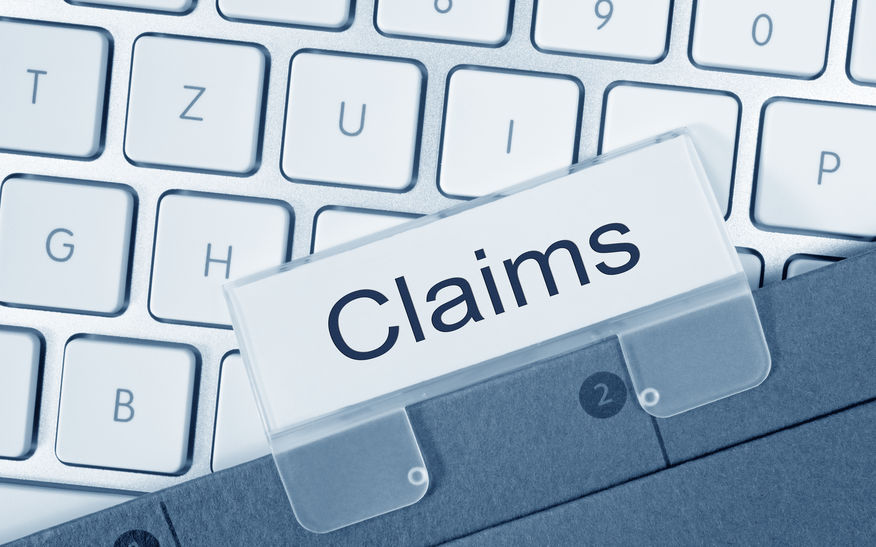Overview
Should we expect bodily injury claims to be made and litigation to be filed in Illinois after “shelter in place orders” are lifted? Probably. It’s Illinois! With fewer car accidents and trip and falls happening during quarantine to keep the plaintiff’s bar busy, there is a good likelihood that there will be some litigation surrounding this novel disease.
 What might these claims look like? We anticipate, potentially, two types of plaintiffs: (1) patrons of businesses to allege that they contracted coronavirus while staying at a hotel, visiting a restaurant, a museum, a grocery store, or simply standing in the lobby or elevator of a public building, and (2) spouses and/or other family members to allege that a business caused negligent infliction of emotional distress for fear of exposure to coronavirus from their family member’s perceived exposure while visiting a public establishment.
What might these claims look like? We anticipate, potentially, two types of plaintiffs: (1) patrons of businesses to allege that they contracted coronavirus while staying at a hotel, visiting a restaurant, a museum, a grocery store, or simply standing in the lobby or elevator of a public building, and (2) spouses and/or other family members to allege that a business caused negligent infliction of emotional distress for fear of exposure to coronavirus from their family member’s perceived exposure while visiting a public establishment.
Interestingly, there are no Illinois cases directly on point discussing land/business owner’s liability for a third-party’s contraction of an infectious disease. So, we must extrapolate and consider that the defense of any COVID-19 claim should start with the same analysis as any premises liability case. In Illinois, in order for a plaintiff to succeed in any negligence based claim, he/she must establish that the defendant breached a duty of care that proximately caused the plaintiff’s injuries.
- What’s the duty of a business/premises owner? In Illinois, one who owns or is in charge of premises owes invitees and licensees thereon a duty to warn them of any danger of which he or she knows or should know and of which the invitees or licensees are not aware. Geraghty v. Burr Oak Lanes, 5 Ill. 2d 153 (1955). The duty to warn of a particular hazard will be imposed only when the defendant has unequal knowledge, either actual or constructive, of the hazard and only if the defendant knows or should know that an injury may occur if no warning is given. Hodges v. St. Clair County, 263 Ill.App.3d 490 (5th 1994). The possessor of land need not anticipate every conceivable distraction that invitees or licensees may succumb to, and has a duty to warn against a hazard only where he or she should reasonably anticipate injury to patrons who are present on the premises and who are generally exercising reasonable care for their own safety. Id. There is no duty to warn against risks that are known or obvious. Briones v. Mobil Oil Corp., 150 Ill.App.3d 41 (3d Dist. 1986).
Knowing this, a highly recommended practice for any premises owner is to refrain from making any representations, oral or written, that the premises is COVID-19 free! This way, a plaintiff cannot claim that he/she entered into a business, or onto a premises, in reliance of an alleged false representation to his/her detriment. In other words, unless a business patron has been living under a rock for the last several months, a business/premises owner starts off with a strong defense that every plaintiff knows, or should know, that coronavirus is contagious and transmittable. Based on current research, any plaintiff knows, or should also know, that coronavirus may be staved by practicing social distancing and wearing a face mask. Another good practice for a premises owner, then, would be to post signs – at the entrance and in various and numerous conspicuous places within the establishment – requiring patrons to wear face coverings and keep a distance of at least 6 feet from others. Thus, if it can be shown that a plaintiff has not at least exercised reasonable care in practicing these two simple steps, then defense counsel should be successful in arguing that the plaintiff assumed a known risk of infection and that there was no duty on the part of the business/premises owner.
- Was there a breach of duty? Notwithstanding what a patron knows or should know about COVID-19 given the extensive media coverage of the virus and that we have been all confined to our homes for the last few months, a premises owner defendant should be able to defend itself by showing that it has instituted all Centers for Disease Control and Prevention guidelines, including instructing employees to keep six feet away from customers, taking of employees’ temperatures, disinfecting surfaces, and providing face masks, hand sanitizers and barriers when appropriate.
- Can a plaintiff prove that the defendant caused contraction of COVID -19? This element will be the most difficult for a plaintiff to prove. The public has been told that coronavirus has an incubation period of approximately 2 weeks. Accordingly, in order for a plaintiff to successfully argue that he/she contracted COVID-19 as a result of exposure at a defendant’s premises/business, that plaintiff would have to credibly prove that he/she could not have been exposed elsewhere. Moreover, if the plaintiff practiced social distancing and wore a mask pursuant to CDC guidelines, the plaintiff will have an even more difficult time proving his/her case without injecting speculation and conjecture.
Notwithstanding the difficulty in proving the causation element, the defense must keep in mind that Illinois case law often finds “proximate cause” to be a question of fact for a jury to decide. Until legal precedent establishes otherwise, caution should be taken not to promise clients that the defense can prevail on a motion for summary judgment based on the “proximate cause” argument.
As of the writing of this note, the City of Chicago has announced preliminary plans for businesses to reopen as Illinois’ stay at home order is gradually lifted. The city encourages employers to review industry-specific guidelines for reopening, prepare a reopening business plan to ensure that they are operationally compliant with the city’s standards, and to complete a survey in order to “self-certify” that the business will be compliant upon reopening. These resources, and more, are available through the city’s website. Preserving evidence of compliance with these steps will help an employer defend against potential COVID-19-related bodily injury claims.
